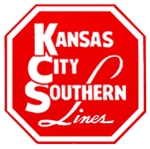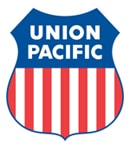CLEVELAND, Ohio (March 7, 2022) — In conjunction with the Transportation Trades Department, AFL-CIO (TTD), the SMART Transportation Division (SMART-TD) and the Brotherhood of Locomotive Engineers and Trainmen (BLET) urge all members to engage in a petition drive to bring attention to the draconian and punitive attendance policies that have forced rail workers to live in constant fatigue.
This effort comes simultaneously with a letter by AFL-CIO TTD President Greg Regan to the federal Departments of Labor and Transportation in support of both unions’ request in late January for an investigation into all rail carrier attendance policies, not just BNSF’s recently imposed “Hi-Viz” policy that has sparked outrage among all affected employees.
The petition is available here.
“We speak with one voice, shoulder-to-shoulder, in saying enough is enough. Congress must act to end these unsafe and life-sapping policies that punish workers with job loss. These severe and excessively harsh policies also penalize families by taking away what precious little time they have with their loved ones, leaving them dead tired and drained,” SMART-TD President Jeremy Ferguson and BLET President Dennis Pierce said. “We thank TTD President Regan as our organizations continue to oppose draconian carrier attendance policies, such as the BNSF ‘Hi-Viz’ policy. These policies are clearly designed to further maximize carrier profits at the workers’ expense. Our unions will work jointly with TTD to raise awareness of these issues; they have gone unchallenged by our legislators and regulatory agencies for much too long.”
A case in point— according to a report in Business Insider published on March 4, five Democratic political leaders want an investigation by the Department of Labor (DOL) and the Equal Employment Opportunity Commission (EEOC) into Amazon’s attendance policies, and we have one question for them:
When do railroad workers get their turn?
Warren Buffett, while not as rich as Jeff Bezos, was crowing about BNSF’s record 2021 profits. It just so happens that his railroad, which happens to be the largest in the nation, imposed the draconian and punitive “Hi-Viz” policy that is absolutely in line with what Amazon is doing — points, permanent records and punishment for people if life gets in the way of work. Other Class I railroads have similar attendance policies. All of these need to be examined closely so that all workers receive the stable work-life balance that they DESERVE.
We’ve seen members’ posts on the internet, we have taken the calls and we have read and responded to the emails from our memberships. This is a top priority for SMART Transportation Division and BLET leaders. We need to work together and unite for a positive change instead of directing anger and discontent inward. As we continue to work with our elected leaders for the same help and support, it stands to reason that we will be reminding Senators Elizabeth Warren, Bernie Sanders and Richard Blumenthal as well as Representatives Alexandria Ocasio-Cortez, Cory Booker and Cori Bush that they should push for answers from BNSF and other railroads with the same energy and focus that they are placing on Amazon.
###
The SMART Transportation Division is comprised of approximately 125,000 active and retired members of the former United Transportation Union, who work in a variety of crafts in the transportation industry.
The Brotherhood of Locomotive Engineers and Trainmen represents nearly 57,000 professional locomotive engineers and trainmen throughout the United States. The BLET is the founding member of the Rail Conference, International Brotherhood of Teamsters.








